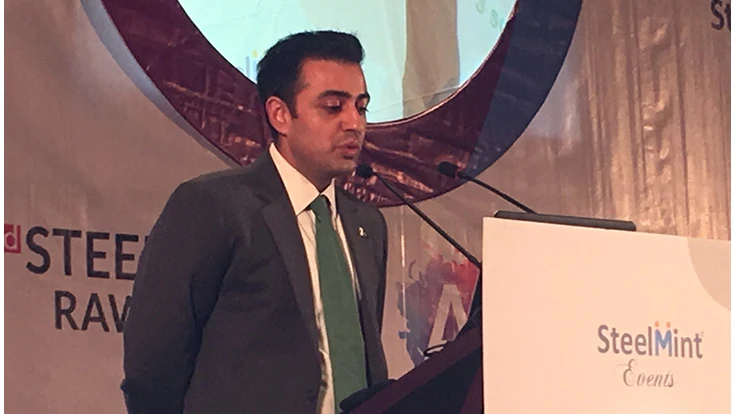
Gross domestic product (GDP) and steel consumption growth in Pakistan, Bangladesh and Vietnam has primed the pump for steelmaking investments in all three nations, according to speakers at SteelMint’s 2017 Steel Scrap & Raw Materials Conference Asia.
Hussain Agha, executive director of Pakistan-based Agha Steel Industries, referred to Pakistan as a “rising star” in the global economy, and he said steel and ferrous scrap will be a crucial part of that nation’s current and anticipated GDP growth. Agha Steel, he noted, is undertaking an initial public offering (IPO) to help it expand its own electric arc furnace (EAF) steelmaking capacity.
Agha said Pakistan will continue to require imported ferrous scrap as its economy grows and its steel consumption and production grows along with it. While the nation imported 900,000 metric tons of ferrous scrap in 2013, that figure increased to 2.4 million metric tons in 2016 and may hit 3.8 million metric tons in 2017.
The United Kingdom was the single largest contributor to the 2016 figure, sending more than 700,000 metric tons of ferrous scrap to Pakistan that year. It was followed by the United Arab Emirates (UAE) at nearly 630,000 metric tons, South Africa at nearly 300,000 metric tons and the United States at slightly less than 200,000 metric tons.
Pakistan has no basic oxygen furnaces, (BOFs) said Agha, so it melts close to “100 percent scrap” to feed its EAF and induction furnace facilities. He said his own company is in the midst of installing a 45-metric-ton EAF line supplied by Italy-based Danieli and also is working with Austria-based Primetals Technologies to boost its production.
Flanking India on its eastern border is Bangladesh, where Imtiaz Chowdhury said BSRM Group is among the steelmakers taking part in sustained economic growth similar to Pakistan’s. Chowdhury cited a recent magazine article that referred to Bangladesh having undergone an “economic miracle in the past 20 years,” but “the world has taken so little notice.”
The growth will continue, predicted Chowdhury, with the nation setting up more special economic zones to attract foreign direct investment. For the world’s ferrous scrap suppliers, this has meant Bangladesh has moved from importing 680,000 metric tons of scrap in 2012 to nearly 2.3 million metric tons in 2016.
Based on current and anticipated steelmaking investments, Chowdhury said that figure could grow to more than 10 million metric tons of imported ferrous scrap needed in 2022, provided the nation’s port facilities can handle that much scrap.
In Southeast Asia, Vietnam’s steel consumption and production is growing at a rate similar to what is happening in the Indian subcontinent. One difference, according to Philip Hoffman of United States-based Hoffman Iron and Steel, is that steelmakers in Vietnam are investing in both BOF and EAF technology.
Nonetheless, said Hoffman, Vietnam is currently importing some 5 million metric tons of ferrous scrap each year, and that figure is poised to rise. The growth has been rapid, with Vietnam’s import figure rising from 3.5 million metric tons in 2013 to an anticipated 5.5 million metric tons in 2018.
Steelmaking projects in the pipeline mean that, even with much of the new capacity being BOF technology, Vietnam could need as much as 10 million metric tons of scrap per year by the next decade.
Where Vietnam’s scrap is coming from is a little bit murky, said Hoffman, with Japan and Australia listed as major contributors, but with the transshipment port of Hong Kong as a leading source of ferrous scrap. A growing contributor appears to be China, he said, from where both containerized and small bulk cargo loads can be easily shipped.
SteelMint’s 2017 Steel Scrap & Raw Materials Conference Asia was Sept. 11-12 at the Avani Riverside Hotel in Bangkok.
Get curated news on YOUR industry.
Enter your email to receive our newsletters.
Latest from Recycling Today
- AF&PA report shows decrease in packaging paper shipments
- GreenMantra names new CEO
- Agilyx says Styrenyx technology reduces carbon footprint in styrene production
- SABIC’s Trucircle PE used for greenhouse roofing
- Hydro to add wire rod casthouse in Norway
- Hindalco to invest in copper, aluminum business in India
- Recycled steel price crosses $500 per ton threshold
- Smithers report looks at PCR plastic’s near-term prospects





